West Hartford Using Nip Bottle Surcharge Funds to Expand Successful Food Scrap Collection Program

Audio By Carbonatix
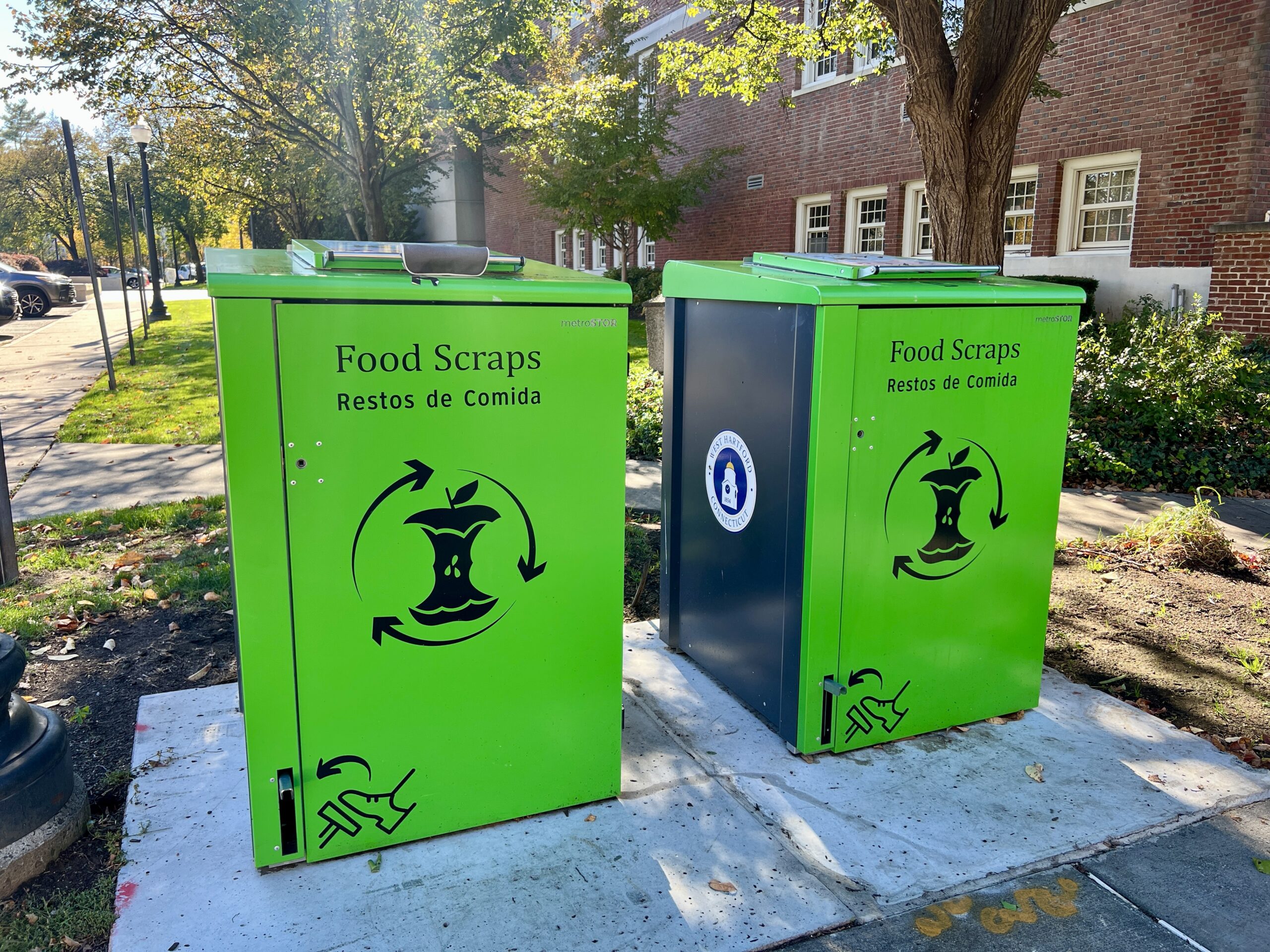
Food scrap collection containers at West Hartford Town Hall. Photo credit: Ronni Newton
The Town of West Hartford will be using some of the fees collected from a state-mandated surcharge on nip bottles to fund the expansion and promotion of its food scrap diversion program.
By Ronni Newton
In the five full months since West Hartford’s food scrap diversion program has been operational, more than 30,000 pounds of material has been dropped off by residents in collection bins and kept out of the waste stream.
The food scrap collection program has been so successful that the four existing bins installed by the town are consistently full, and being emptied daily during the week, Recycling Coordinator Katherine Bruns said. She’s excited that the Town Council, at its last meeting, approved the use of $119,000 received through the state’s Bottle Bill – fees collected from a five-cent-per-bottle surcharge attached to miniature alcohol containers (nips) sold in West Hartford – in part to expand the number of food scrap collection locations and containers in town as well as the emptying and transportation of the contents.
Blue Earth Compost has contracted with the town to transport the contents of the food waste collection bins to Quantum Biopower in Southington, where the material is turned into biofuel as well as compost.
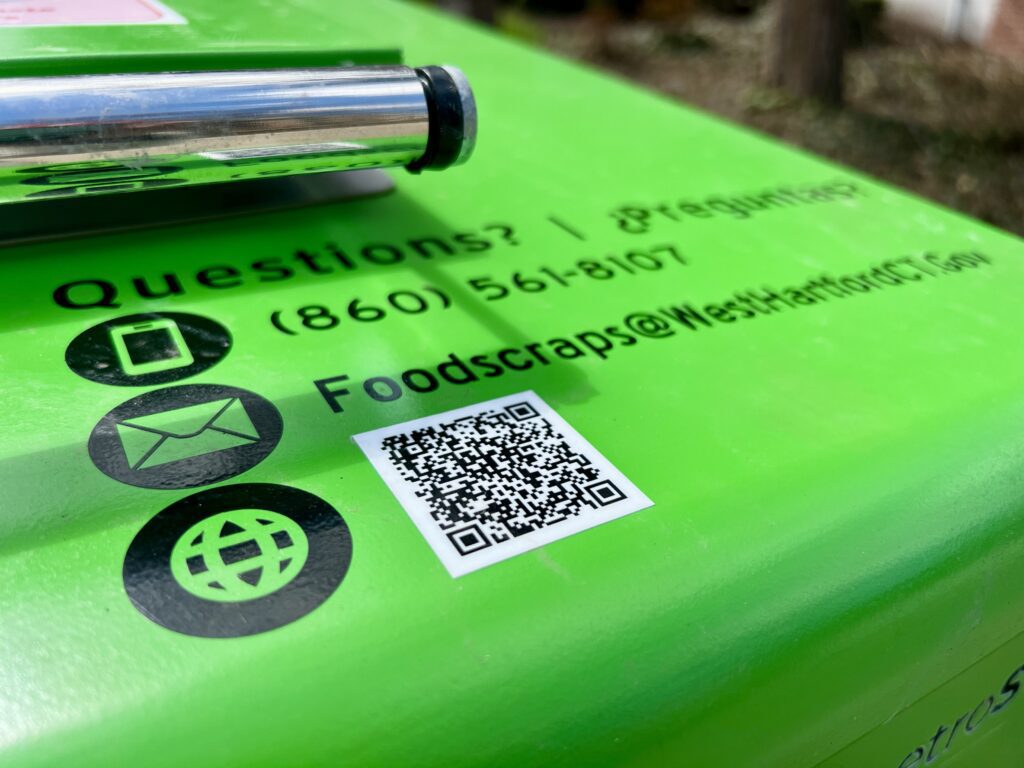
QR codes on the top of the food scrap collection bins provide additional information. Photo credit: Ronni Newton (we-ha.com file photo)
As of Oct. 20, Bruns said 923 residents have signed up for the MetroKEY app in order to access the food waste collection bins, which are currently located at Town Hall (two containers), Norfeldt Field, and Eisenhower Park. Food scraps can also be dropped off at the Yard Waste and Recycling Center at the Public Works Brixton Street campus when the facility is open, but in a different type of container that does not require an app to access. Roughly 50% of those who have registered are active users, and she said in many cases it’s likely that multiple members of a household have the app, but only one regularly drops off the food scraps.
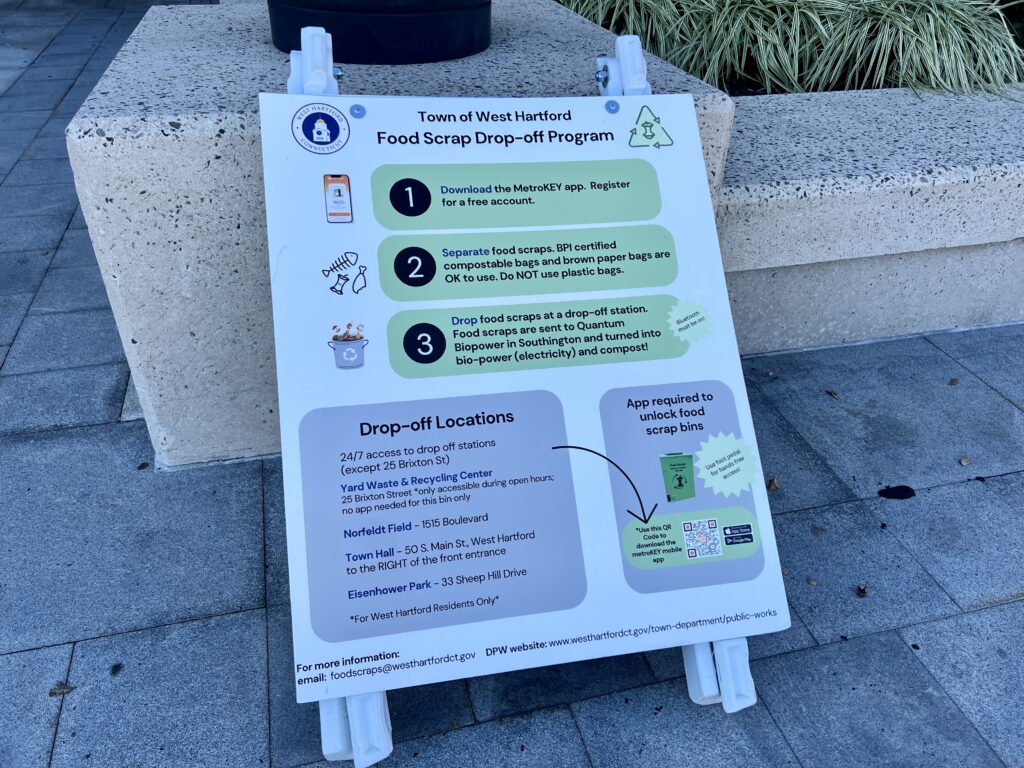
Food scrap collection information. Photo credit: Ronni Newton
The expansion of the program will include the installation of 10 more containers, with additional collection points at Fernridge Park, Vanderbilt Park, Bishops Corner Library, Westmoor Park, Faxon Library, Wolcott Park, and the Elmwood Community Center.
“It continues to be really popular and we have been pleased with the response and enthusiasm. We have had no problems with contamination,” Bruns told We-Ha.com.
“Residents say they are happy to have this offering and many say they no longer put their trash out every week because there is less of it, and because it doesn’t smell. It’s fun to see residents swapping ideas for food scrap storage and transportation on the Neighbors and Friends Facebook page and when chit chatting at the actual drop off containers,” Bruns added.
“Neighbors help each other out with transporting scraps, too. It has definitely raised awareness of how much of our trash is food scraps. It’s just so visual,” Bruns said.
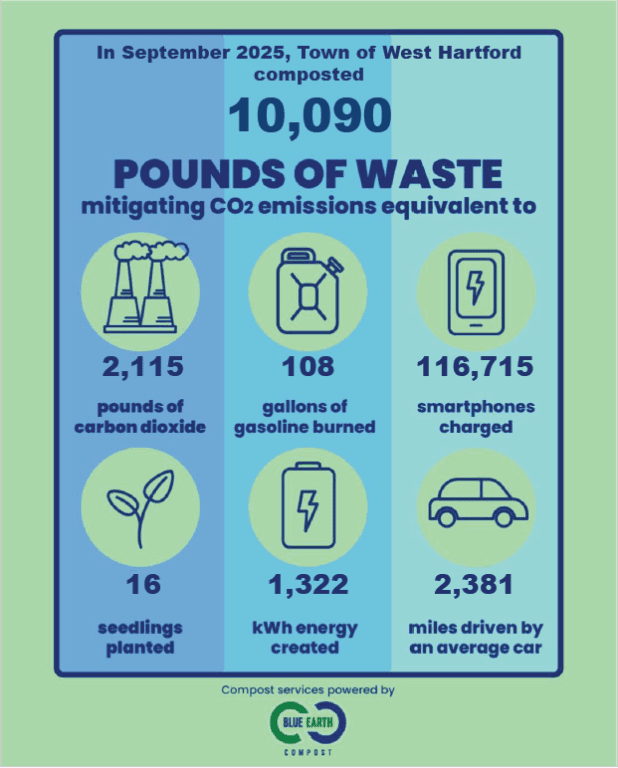
Courtesy of West Hartford Department of Public Works
The total amount of food scraps collected since the beginning of May is 32,233 pounds, Bruns said Monday, with the following monthly breakdown:
- May – 4,140 pounds
- June – 4,845 pounds
- July – 5,680 pounds
- August – 7,413 pounds
- September – 10,100 pounds
Sign-ups for the app continue to grow, as does usage, but Bruns said she is waiting to further ramp up education and outreach until the capacity is available with the additional containers.
She plans to set up a table at the town’s Community Block Party on Nov. 2 (11 a.m. until 2 p.m. at Town Hall) to raise awareness and share information, and has some kitchen caddies that she will distribute at that event, too.
Updates to the Bottle Bill made in 2021, through Public Act 21-58, “addresses many environmental concerns, including the issue of litter caused by the careless disposal of 50ml alcohol beverage containers” the resolution approved by the West Hartford Town Council states. Section 10 of the Act requires that wholesale distributors collect a surcharge of five cents per miniature container sold to Connecticut package stores, track the sales, and every six months remit the fees to the towns where the bottles were sold. Towns are required to use the funds to support waste management or related environmental programming.
West Hartford has received $164,825.46 since the program began, and the Town Council voted unanimously at its Oct. 14, 2025 meeting to apply $119,000 of the funds in the current fiscal year for initiatives identified by the Department of Public Works in support of reducing the town’s goals of reducing solid waste, increasing recycling, and promoting sustainability, town Manager Rick Ledwith said. Specifically, he said the use of the funds will be for “the expansion and promotion of food scrap diversion programs, funding of a Recycling Coordinator position to support compliance, outreach and program management and public education and outreach efforts on recycling, waste reduction and sustainable materials management.”
The allocation of the funds will include $44,000 for the additional bins, $24,000 for contracted transportation, and $51,000 to fund the recycling coordinator salary.
West Hartford implemented the food scrap collection program this year as a simple and easy-to-use way to help the town begin to meet its waste reduction goals. Unlike the town-wide curbside collection in conjunction with unit-based pricing for trash collection that had been under consideration last year, following a pilot in the Morley neighborhood, this program is completely voluntary.
Taking the food scraps out of the waste stream not only reduce the quantity and weight of the trash (food waste is heavy), but also make it less stinky. And it costs roughly 30% less to dispose of food waste than it does to dispose of trash.
A graphic that appears on the top of the collection bins shows a food pyramid with what’s allowed to be discarded, and a list that includes meat, bones, dairy, eggs (including shells), fruits, vegetables, grains, sweets, and any type of processed foods. Spoiled foods – complete with mold – are accepted. Coffee grounds (and paper filters) and tea bags (minus any staples) are also acceptable.
Unacceptable items include plastic, styrofoam, metal, glass, and glass, as well as any pet waste or diapers. BPI-certified compostable bags can be used not only for transporting items to the drop-off sites, and can be placed in the bins along with their contents. If you bring your food waste in a paper bag you can drop that in as well, but regular plastic bags need to be dumped out into the bin.
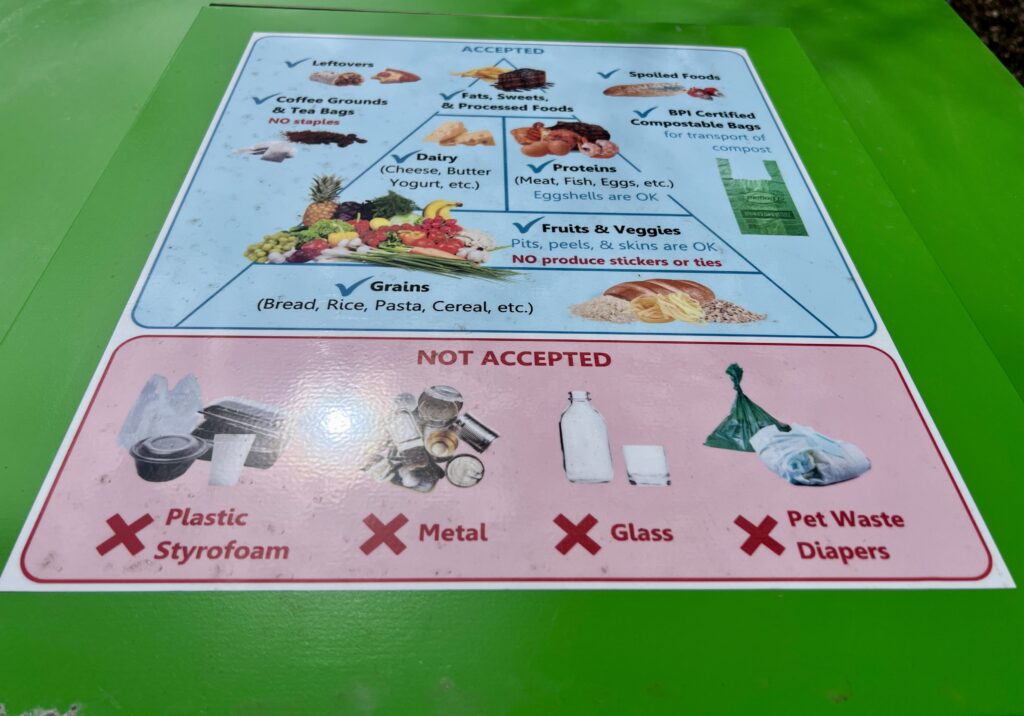
A graphic on top of the food scrap collection bin indicates what can and can’t be discarded. Photo credit: Ronni Newton (we-ha.com file photo)



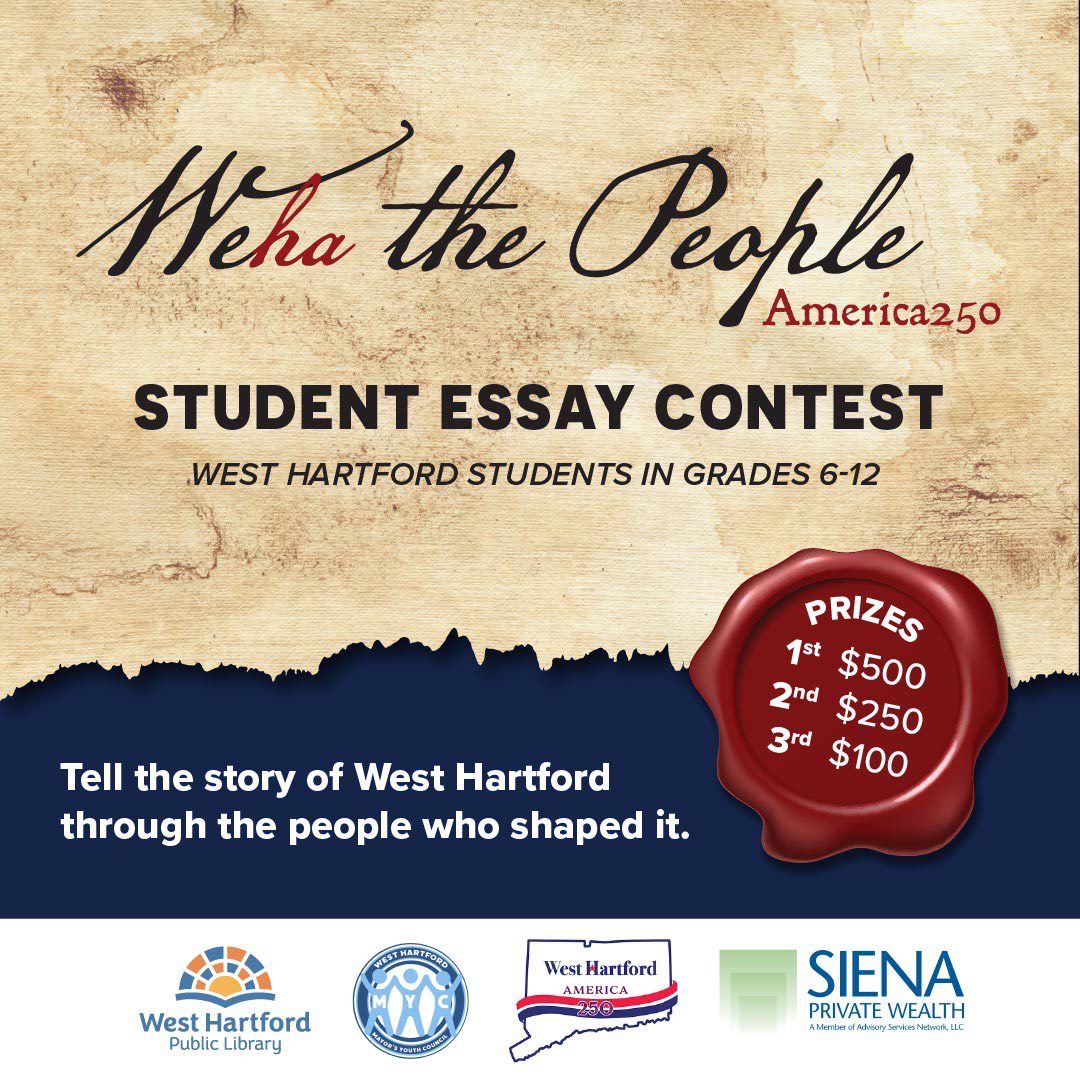
We joined the food scraps recycling program this summer. It is a little more work to separate and deliver the food scraps to the collection bins but the return is knowing it is helping the environment.
We met Katherine Bruns at a town event. She explained how the program works and gave us a small bin to use. We were impressed by her broad knowledge of recycling and her ability to convince and recruit us.
We have been doing this since its inception. Excited to see the expansion as hopefully more people will be participating. We got an inexpensive screw top pail and transfer from our countertop container to that. As just two of us, we generally can go ten days to two weeks before the bigger container needs to be emptied. Thanks to the town for starting this program!!!
Is there any consideration for a collection bin at the western edge of Town? Could one be put near Cornerstone or the Buena Vista courts and community garden?
I am such a fan of this program!! So glad to see it expanding